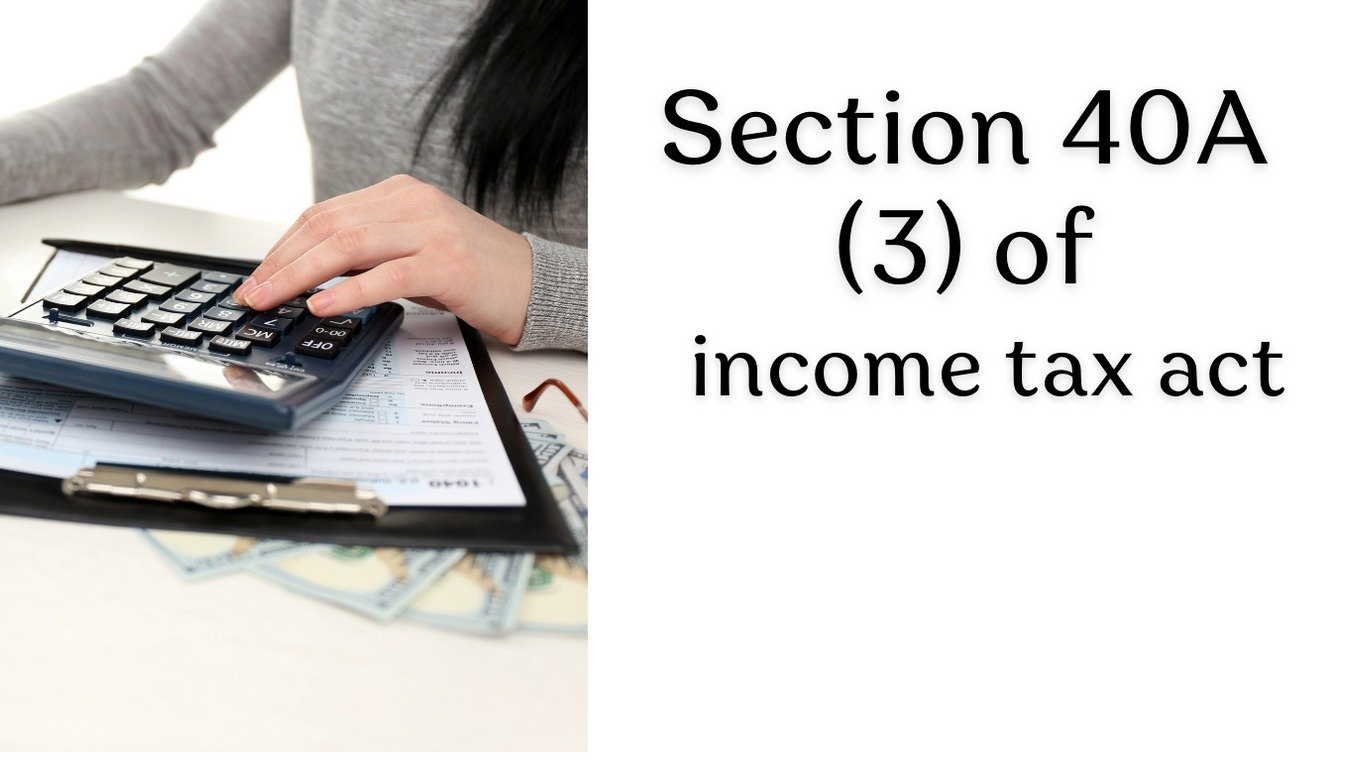Introduction:-
Best Section 40A(2) of income tax act addresses payments made to relatives and associated individuals. It stipulates that if an assessee incurs expenses intended for payment to a specified person, and the Assessing Officer deems such expenditure excessive or unreasonable in relation to
the fair market value of the goods, services, or facilities provided, or in consideration of the legitimate needs of the business or profession, or the benefits accrued to the assessee, then the portion of the expenditure considered excessive or Best Section 40A(2) of income tax act unreasonable shall not be permitted as a deduction. This provision aims to prevent the Best Section 40A(2) of income tax act manipulation of expenses through transactions with relatives or associated persons, ensuring fairness and accuracy in the assessment of taxable income.
List of specified persons:
If the assessee is an individual:
Any relative of the individual assessee is considered the specified person of the individual assessee.
Any person carrying on a business or profession is considered the specified person of the individual assessee if:
- The individual assessee has a substantial interest in the business of that person,
- If any relative of the individual assessee holds a significant stake in the business of that individual.
Best Section 40A(2) of income tax act This classification helps in identifying individuals or entities closely related to the assessee, ensuring Best Section 40A(2) of income tax act transparency and preventing the misuse of expenses through transactions with relatives or associated persons.
Examples:
Best Section 40A(2) of income tax act An individual assessee’s wife is entitled to a share of profit at 30% in a partnership firm. Consequently, the said firm is considered the specified person of the individual assessee. Best Section 40A(2) of income tax act When the individual assessee purchases goods from the firm as part of his business activities, this transaction is deemed a related party transaction.
If the assessee is a company,
Best Section 40A(2) of income tax act any director of the assessee-company or any relative of such director is regarded as the specified person of the assessee-company. Similarly, any individual having a substantial interest in the business or profession of the assessee-company, or any relative of such individual, is considered the specified person of the assessee-company.
Best Section 40A(2) of income tax act For instance, if an individual holds shares carrying a voting power of 25% in a company, both the individual and their relatives are treated as specified persons of the company. Best Section 40A(2) of income tax act If the individual’s wife provides legal services to the company, the transaction of availing legal services is classified as a related party transaction.
Best Section 40A(2) of income tax act Any person who carries on a business or profession is considered the specified person of the assessee-company if the assessee-company, any director of the assessee-company, or any relative of such director has a substantial interest in the business of that person.
Best Section 40A(2) of income tax act For example, if a company utilises a patented process for manufacturing goods and is required to pay royalty to a firm, and if the brother of the company’s Best Section 40A(2) of income tax act director is a partner in the firm entitled to a share of profit at 50%, then the firm is deemed the specified person of the company, and the transaction involving the payment of royalty is treated as a related party transaction.
Best Section 40A(2) of income tax act These examples illustrate how specified persons are identified in various scenarios, highlighting related party transactions as per the provisions of Section 40A(2) of the Income Tax Act, 1961.
If the assessee is a firm:
- The partner of the firm or a relative of such partner is considered the specified person of the assessee-firm.
- Any person carrying on a business or profession is regarded as the specified person of the firm if the firm or partner of the firm or relative of such partner has a substantial interest in the business of that person.
If the assessee is a Hindu Undivided Family (HUF): Best Section 40A(2) of income tax act
- Any member of the family or relative of such member is considered the specified person of the assessee HUF.
- Any person carrying on a business or profession is deemed the specified person of the HUF if the HUF or member of the family or relative of such member has a substantial interest in the business of that person.
If the assessee is an Association of Persons (AOP):
- Any member of the AOP or relative of such member is regarded as the specified person of the assessee AOP.
- Any person carrying on a business or profession is treated as the specified person of the AOP if the AOP or member of the AOP or relative of such member has a substantial interest in the business of that person.
These provisions help in identifying specified persons associated with firms, HUFs, and AOPs, ensuring transparency and fairness in taxation.
All assessees
If a company has a substantial interest in the business of the assessee, then the company itself, the director of such company, or a relative of such director is considered the specified person of the assessee.
Conclusion :-
In conclusion, the provisions outlined above in Section 40A(2) of the Income Tax Act, 1961, address payments made to relatives and associated individuals. These provisions aim to prevent excessive or unreasonable expenditure by disallowing deductions for amounts deemed excessive or unreasonable by the Assessing Officer. Specified persons include relatives, individuals carrying on business or profession, directors of companies, and others with substantial interests in the assessee’s business. By defining these relationships, the legislation seeks to ensure fairness and accuracy in taxation assessments, promoting transparency and accountability in financial transactions.
SOURCES: https://www.incometax.gov.in/iec/foportal/
FOR MORE INFORMATION: https://taxgyany.com/

